 Looking for ways to boost your credibility using social media? Wondering how to capitalize on positive company mentions?
Looking for ways to boost your credibility using social media? Wondering how to capitalize on positive company mentions?
In this article, you'll discover how to incorporate social proof into your social media marketing.
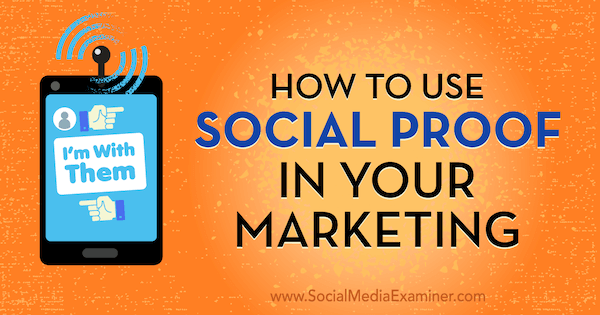
Why Include Social Proof in Your Social Media Marketing?
The term social proof was coined by prominent psychologist and author Robert Cialdini. He described it as a psychological and social phenomenon that leads people (read: customers) to mimic the actions of others in a given situation because of an inherent need to conform.
In other words, when people are unsure of how to react or respond to a situation, they automatically look to others around them, under the assumption that these people—whether experts, celebrities, friends, or even other consumers—know more than they do and hence also know what should be done.
Social proof affects us in more ways than are immediately apparent. A testimonial from an expert you admire or trust on the landing page of a product is social proof. Similarly, chancing upon the logo of an industry giant on a tool or service that you may be exploring is also social proof.
Your tendency to prefer a product or a service that your friends have recommended or have tried out for themselves can also be attributed to the impact of social proof.
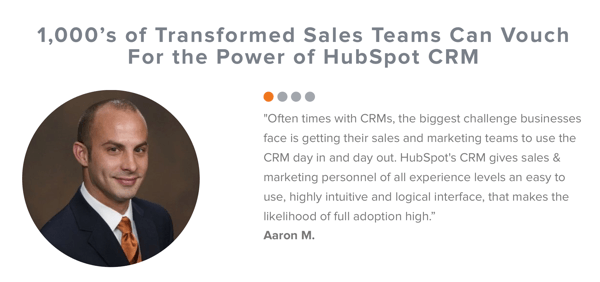
Social proof can give customers powerful emotional triggers that significantly influence their reaction and response to your brand or even to specific products. It not only can help them make a positive decision about your business but also inspire confidence in their choice and give them the feeling of being a part of something bigger.
When viewed through the lens of a business owner or marketing professional, social proof can validate important claims about products, while also justifying your pricing. Even without realizing it, your business or brand is already generating copious amounts of social proof. Every customer, follower, or expert who associates with your brand can do more than their share in swaying the tide of public sentiment in your favor.
The manner in which you use social proof to boost your visibility efforts will vary with the type of social proof in question. Here are three ways you can use multiple types and sources of proof in combination to increase your brand's credibility.
#1: Spotlight Customer Reviews and Testimonials
Approval from your existing and past users in the form of ratings, reviews, and testimonials can positively impact the mindset of potential customers before they engage with your brand. Positive opinions expressed by friends and people known to potential customers improve the latter's chances of trying out a new product or service.
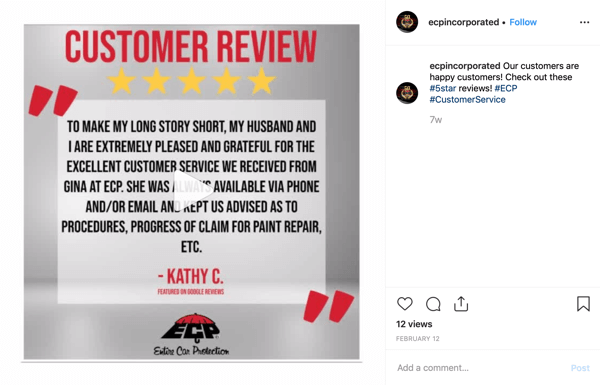
Highlighting the fact that large numbers of people are already benefiting from your product or service automatically generates in potential customers the ‘fear of missing out' (FOMO).
Encourage users to share a branded hashtag or repost users' social posts on your brand's social accounts and websites. Many brands shy away from customer reviews for fear of inadvertently highlighting any negative feedback. Here, it's important to remember that even a few negative reviews, when balanced with positive feedback, can add to authenticity.
Get World-Class Marketing Training — All Year Long!
Are you facing doubt, uncertainty, or overwhelm? The Social Media Marketing Society can help.
Each month, you’ll receive training from trusted marketing experts, covering everything from AI to organic social marketing. When you join, you’ll also get immediate access to:
- A library of 100+ marketing trainings
- A community of like-minded marketers
- Monthly online community meetups
- Relevant news and trends updates

Customer reviews work especially well for technical products or those in industries that are very crowded and competitive.
There are several things you can do to increase the number of reviews your product or brand receives. You can ask customers in person for a review, reach out to repeat customers, include prompts in surveys, offer incentives, or highlight customers who have left reviews.
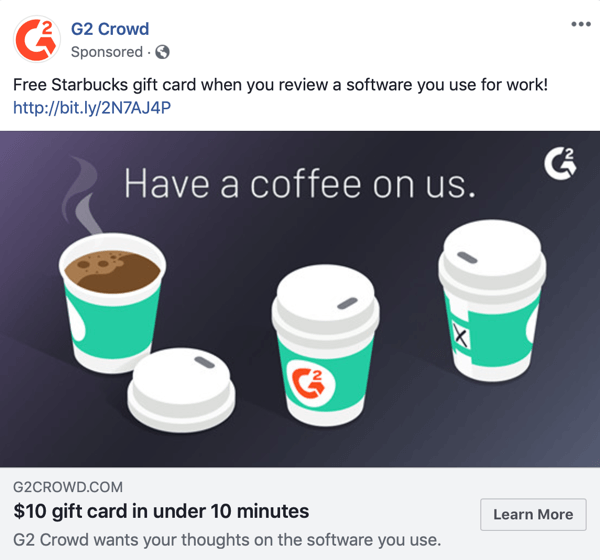
Remember that customers won't necessarily wait for your invitation to review your product or service. Check forums and review sites such as Yelp and Google regularly and monitor the conversation about your brand and products so you can keep mining fresh content (and social proof) for your website.
Despite being among the oldest tools in the box, never underestimate the power of testimonials. Whether in video or written form, testimonials are proven to significantly increase the conversion rate of landing pages. When selecting testimonials to display on your website's landing page, make sure to include content that counters actual objections that potential customers may have, instead of solely focusing on those that praise or glorify your product.
Strong testimonials that help prospective clients visualize their improved life post-purchase are best positioned near a call to action, and groups of testimonials work best on long-form sales pages.
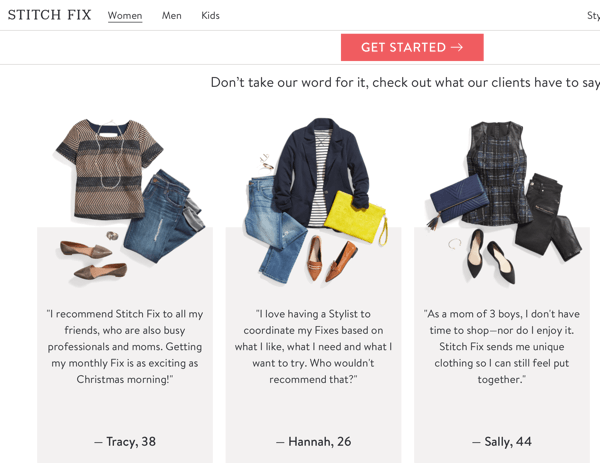
#2: Promote Prominent Industry Associations
Receiving a stamp of approval from an authoritative entity such as Google, Instagram, or Facebook can lead more first-time customers to anticipate a positive experience with your brand.
Ties to very popular and trusted authorities are easily recognizable and can quickly and effectively boost the credibility of your brand. Don't hesitate to mention your clients, collaborations, and awards in your social media posts. When applicable, include an image that showcases relevant logos or award graphics.


Discover Proven Marketing Strategies and Tips
Want to go even deeper with your marketing? Check out the Social Media Marketing Podcast! Publishing weekly since 2012, the Social Media Marketing Podcast helps you navigate the constantly changing marketing jungle, with expert interviews from marketing pros.
But don’t let the name fool you. This show is about a lot more than just social media marketing. With over 600 episodes and millions of downloads each year, this show has been a trusted source for marketers for well over a decade.
Media mentions are another great way to boost credibility. Mentions from respectable and popular publishers can go a long way toward increasing the trust that potential customers have for your brand. Look into featuring sources when highlighting media mentions on your website, especially if your brand has been featured by a prominent publication.
This implicitly ‘proves' to search engines and your audience that your brand has already earned high-quality links and the approval of a renowned publication.
#3: Leverage Brand Ambassadors and Industry Expert Relationships
It's quite easy for us to trust the opinion of other people who have the same tastes and interests as we do. Products and services recommended by an industry expert are automatically buoyed by their specialized know-how. Celebrities bring to a brand a certain aspirational value. We want to look, feel, and be like the celebrities we admire, and hence are more amenable to using brands they endorse.
Consider having an easily recognizable and relevant expert take over your social media profiles, particularly during specially curated social media events. The reason why such collaborations work so well is that they create a win-win situation for both you and the expert. The expert benefits from being able to reach your audience, while you can tap into the expert's base of followers and loyalists.

You don't have to afford A-list movie stars on a start-up budget to tap into the many benefits that brand ambassadors can bring. Instead, take your pick of industry experts, social media influencers, or even passionate users who'll spread the word about your brand on their own websites.
This strategy works especially well if the ambassador in question has a considerable following among users you're hoping to engage. Many will proudly flaunt their ambassador credentials on their social media bios and include a branded hashtag in relevant social media posts, which further adds to your brand's visibility.
Bonus Tips
Here are a few additional ways to boost your brand's credibility.
Get Verified on Your Social Media Platforms
In the age of social media, a blue checkmark on your Facebook, Twitter, and Instagram bios indicates your brand is popular, influential, or interesting. For many customers, that's all the assurance they need that your brand is also authentic and trustworthy. Being verified on a social platform also means that your page will automatically be ranked higher on that platform's search engine. Your page will also be more prominent in the search results.
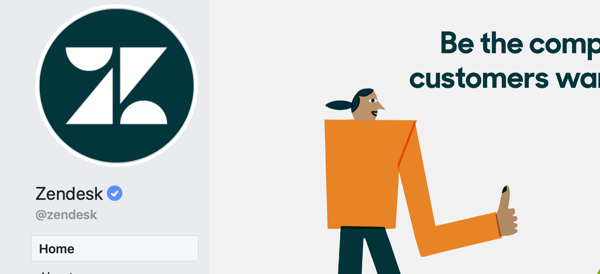
Highlight Audience Stats
It's often said that a single statistic is worth a thousand words. One way to leverage your existing following to create social proof for potential customers is to celebrate user- or follower-related milestones.
Displaying the actual number of followers on your website or social media account helps your targeted audience quickly assess how many people like them are interested in what you're offering. This, in turn, makes your brand more relevant and meaningful. Brands that have a large number of followers or endorsers seem more trustworthy and reputable than those that don't. Use these follower stats to lend credibility to your marketing efforts.
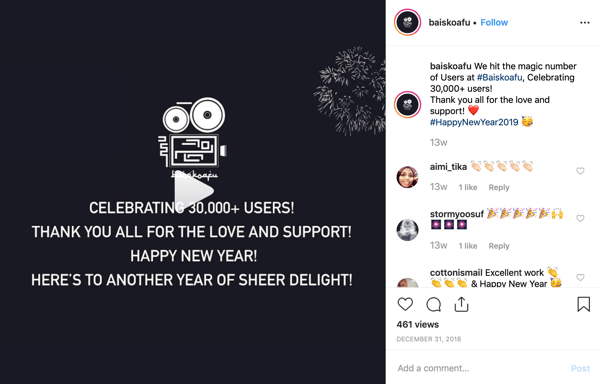
Conclusion
Now that you've built enough credibility for your brand on various online and offline channels, how does this influence percolate into broader online credibility for your brand?
Reviews and testimonials count as fresh content for search engines, which will rank your website much higher if the content is frequently and regularly updated. Even reviews hosted on other websites and forums can help because backlinks from these boost your own website's SEO ranking.
Regardless of where your customers choose to post their reviews and comments, as a business owner or marketing professional, your role is to encourage them to keep generating and sharing these reviews.
More fresh content and better authority are music to the ears of search engines. Every review, therefore, is an opportunity for your brand to boost its SEO rank. With more users reviewing your product, searches for “your product + review” will become more popular, helping new customers discover your brand.
User reviews may also help with long-tail searches because the language used in the reviews is often similar to that used when searching for a product. Again, this increases your chances of targeting your intended audiences.
Social media reviews and mentions can also play a role in boosting the authority of your brand's website. For instance, when your company releases a new product or service, feature reviews on your page and encourage users to discuss the release on social media. This will ensure your brand automatically stacks up numerous mentions. The more mentions, the wider your reach, with several links leading back to your website.
If influencers and the media refer to your product in their social accounts, you also stand to gain trust and credibility. In these ways, social signals can contribute to increasing your brand's authority, leading search engines to sit up and take notice of its popularity.
Social proof can increase conversions and dwell time: Increased dwell time on a website is one of the top criteria used by the latest RankBrain algorithms. The more social proof you include on your website and landing pages, the higher the chances of conversions and also longer dwell times.
What do you think? Will you use more social proof in your marketing? What other types of social proof have you used? How has social proof benefited your business? Share your thoughts in the comments below.
More articles on social media marketing:
- Learn how to research, manage, and protect your brand’s reputation with social media.
- Discover how to respond to unhappy customers on social media and address negative online content.
- Find out how to use fan content legally in your social media marketing.
Attention Agency Owners, Brand Marketers, and Consultants

Introducing the Marketing Agency Show–our newest podcast designed to explore the struggles of agency marketers.
Join show host and agency owner, Brooke Sellas, as she interviews agency marketers and digs deep into their biggest challenges. Explore topics like navigating rough economic times, leveraging AI, service diversification, client acquisition, and much more.
Just pull up your favorite podcast app, search for Marketing Agency Show and start listening. Or click the button below for more information.

